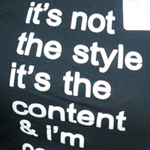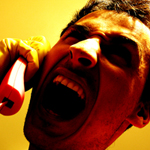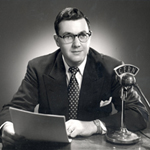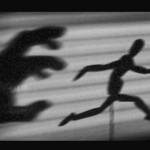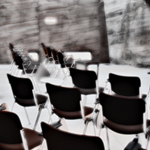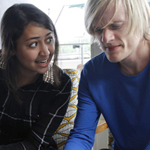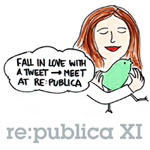The European Dialogue on Internet Governance (with the obvious but easily unfortunate abbreviation EURODIG) understands itself as an open platform to discuss internet governance and related policy issues. It was created in 2008 and aims to involve all stakeholders from across the region, from governmental and non-governmental organisations to content and infrastructure providers, from internet makers and users to internet observers and regulators. Once a year, the European Dialogue on Internet Governance culminates in a multi-stakeholder conference. The conference, and the entire process, need some serious upgrading.
Here are twelve starting points to reload EURODIG for 2012.
01. The content. A good conference stands out due to relevant and engaging content. Making reasonable choices about the scope of the entire conference as well as individual sessions are probably among the most difficult decisions to take, but they are crucial: trying to cover everything will almost inevitably lead to broad interventions, vague discussions and little impact. At the 2011 EURODIG Conference, almost all plenary and workshop sessions suffered from the—understandable, yet ruinous—desire to cover too many themes, aspects and angels at a time. My suggestion: In 2012, we give each EURODIG session a relevant and manageable focus, underpinned with three leading questions.
02. The context. Making choices about contents priorities allows to zoom in and debate questions in a meaningful way, but it also carries the risk of loosing sight of the larger context. (Not making a choice and scratching the surface of many aspects carries the same risk, of course, which the 2011 EURODIG Conference demonstrated formidably.) Understanding the larger issues and frameworks when debating specific questions helps to make the discourse on internet governance an informed exchange. My suggestion: In 2012, we produce a conference reader ahead of EURODIG, introducing the larger context and framework as well as all sessions with their foci and leading questions.
03. The crowd. EURODIG wants to be a platform for discussions on internet governance between stakeholders from all over Europe. Way too many stakeholders were absent or underrepresented – some by default, some by choice, some by coincidence, some by mistake. Where were the net activists from La Quadrature du Net or Digitale Gesellschaft? Where was the Creative Commons movement? Where was the Euroblogging scene? Where was the open data movement? Where was the digital rights movement? My suggestion: By the end of 2011, we have spoken to all missing stakeholder groups, trying to make sure that EURODIG will become relevant and useful for them.
04. The dialogue. EURODIG is, in theory, all about dialogue. In practice, the conference featured a series of speakers, followed by a series of audience interventions from the usual suspects. Almost all panels and many workshops followed this pattern – death by powerpoint instead of inspiration by dialogue. Conferences have been re-thought for a while already, and while it’s not useful to flippantly apply the format of unconferences to EURODIG, there is much to be learned from them. Let’s mix in some Pecha Kucha, Open Space, Fish Bowl, Foo Camp, Knowledge Café, Speed Geeking and add our own inventions. My suggestion: In 2012, we run the conference in a completely re-developed format.
05. The facilitation. In every conference, there are gaps of knowledge between attendees, there are power differentials at play, and there is often a—perceived— lack of time. In almost all sessions of the 2011 EURODIG Conference, the facilitation did not address this and was problematic: from acoustic feedback to dying batteries, from introductory monologues to judgemental commentary, from roaring speedtalkers to hushed whisperers, from manipulative openings to biased conclusions (sponsors as moderators?!) we had to witness an impressive array of shortcomings. My suggestion: In 2012, the entire conference will be facilitated by a team of experienced and, importantly, neutral moderators.
06. The planning. The planning of the EURODIG Conferences is intended and designed to be participatory, with email groups serving as the main tool for communication. It’s easy to join the groups and join the preparation, but the flip-side of all this is that the planning is quite inefficient: it takes long, is documented badly, and de facto the plans are finalised in last minute manoeuvres by some of the key people involved. There is a common misperception about self-organised and anarchic participation vs dominant and hierarchic facilitation at play here… My suggestion: In 2012, we facilitate the session planning in several steps, document it well and finalise it two months before the event.
Our series of overviews on internet governance in Europe:
(1) Council of Europe | (2) European Union | (3) United Nations | (4) UNESCO | (5) OECD | (6) Civil society
07. The speakers. The line-up of speakers for the 2011 EURODIG Conference was absurd in many ways: too many speakers, too many men, too many persons who had little to say, too many speakers who didn’t know how to present well, and too many panelists unfortunately combining these two weaknesses. It was amusing at the best of times and downright painful at the worst of times. Dialogue does not thrive from dozens of panelists with powerpoint presentations, and it wouldn’t even help if they were great speakers. Let’s please stop this altogether. My suggestion: For 2012, we choose not more than five keynote speakers, men and women who have something to say and who can get their message across.
08. The website. WordPress 2.9.1? Cforms 11.4? jQuery 1.3? WP-Tables 1.7? You must be kidding me. I could hack this site and take it down in just a few minutes, and so could many others. I don’t mind that the design of the page is, well, outdated; it can be improved. I don’t mind that the page navigation is, well, confusing; it can be changed. I do mind that the software used to run the site is out-of-date, exploitable and vulnerable; it’s just altogether wrong. An excellent conference site, built with WordPress, is re-publica.de, let’s learn from them. My suggestion: For 2012, we re-develop the website from scratch and make it great: good-looking, easy to navigate and filled to the brim with quality content.
09. The venue. I guess oxygen and daylight are overrated, and smelly fitted carpeting and asbestos underappreciated? Sava Center, “erected in 1977 as a modern building complex,” we look at you! Let’s try to find modern convention centers, built with humans and social interaction in mind, respecting modern ecological and energetic standards, and offering decent food for vegetarians. Powerplugs and reliable internet access points are pretty good, but it would be great if they weren’t needed to take attention away from the immediate environment. My suggestion: Before the end of 2011, we develop a concise list of criteria for our conference venues to inform future host countries.
10. The youth. I was involved in the New Media Summer School, and am thus particularly biased on this point, but why do we perceive young people always as young? This makes no sense — we don’t treat all older attendees as silver surfers, or all civil servants as governmentals, or all business people as moneymakers. Why then do we treat young people first and foremost as young people? It’s disempowering and disenfranchising. Let’s put some effort into looking at people’s competences and contexts instead of stereotyping them because of their age. My suggestion: In 2012, we treat young people as we treat everybody else at EURODIG: as experts on internet governance.
11. The documentation. The documentation of each year’s EURODIG is pretty extensive: reports of the sessions are online as well as complete transcripts, messages from EURODIG ollow each annual conference, and in 2011 some visual documentation was thrown into the documentation mix. Little of it seems to have a noticeable impact though — partly because the documentation reflects the lack of conclusiveness of many of the debates, partly because the documentation does not manage to convey the progress of the discourse in a way that can be picked up. My suggestion: In 2012, we run the conference with a full reporting team, including a general rapporteur and a visual sensemaking team.
12. The outcomes. Discussions are nice, dialogue is great, but it shouldn’t be an infinite loop of indecisive and inconclusive debates. Where are our demands? Where are our commitments? Where are our concise summaries? Where are our state of play documents? Where are our position papers? There are reams of possibilities to trigger, and document, concrete outcomes — they may not hold for everyone in the audience, they may not be the ultimate truth, they may provoke disagreement and friction… And yet! My suggestion: For 2012, we find a way to sum up the conference with some clear recommendations, clever suggestions, new questions and decisive calls for action.
Update: A friend asked me whether I also have twelve things to keep about EURODIG. Here is my response:
Of course I do! I wouldn’t spend the time to critique the European Dialogue on Internet Governance if it wasn’t worth the critique. Twelve things I would keep are 01. The event itself. It’s important and relevant and it should continue to exist. 02. The affiliation with the Council of Europe. It’s crucial to view internet governance from the perspective of human rights, and not exclusively from the perspective of economic development. 03. Panelists like Birgitta Jonsdottir and Marietje Schaake. We need some more of that calibre please! 04. Visual sensemaking. It’s a way of documenting that’s getting a lot of attention, and for good reason. 05. Twitter channels. The curated twitter message chronology here provides a selective but excellent overview of the conference. 06. Video interviews. The videos produced by Nasma and Tobias are superb. 07. Humour and irony. Some of the facilitators were funny, some were ironic. More of that! 08. Long breaks. Being able to have relaxed lunch and enough time to talk to attendees is essential. 09. Link to the EU Digital Agenda. In 2011, the link was still relatively weak, but it was there and should be strengthened. 10. Livestream and remote hubs. Several remote participants commented that the sound was awful, but the possibility to follow the conference from afar was much appreciated. 11. Working wireless. You wouldn’t believe how many conferences don’t get this to work. 12. A good party. The reception and party atop the Belgrade tower was splendid, if a little short on vegetarian food and white wine :)
